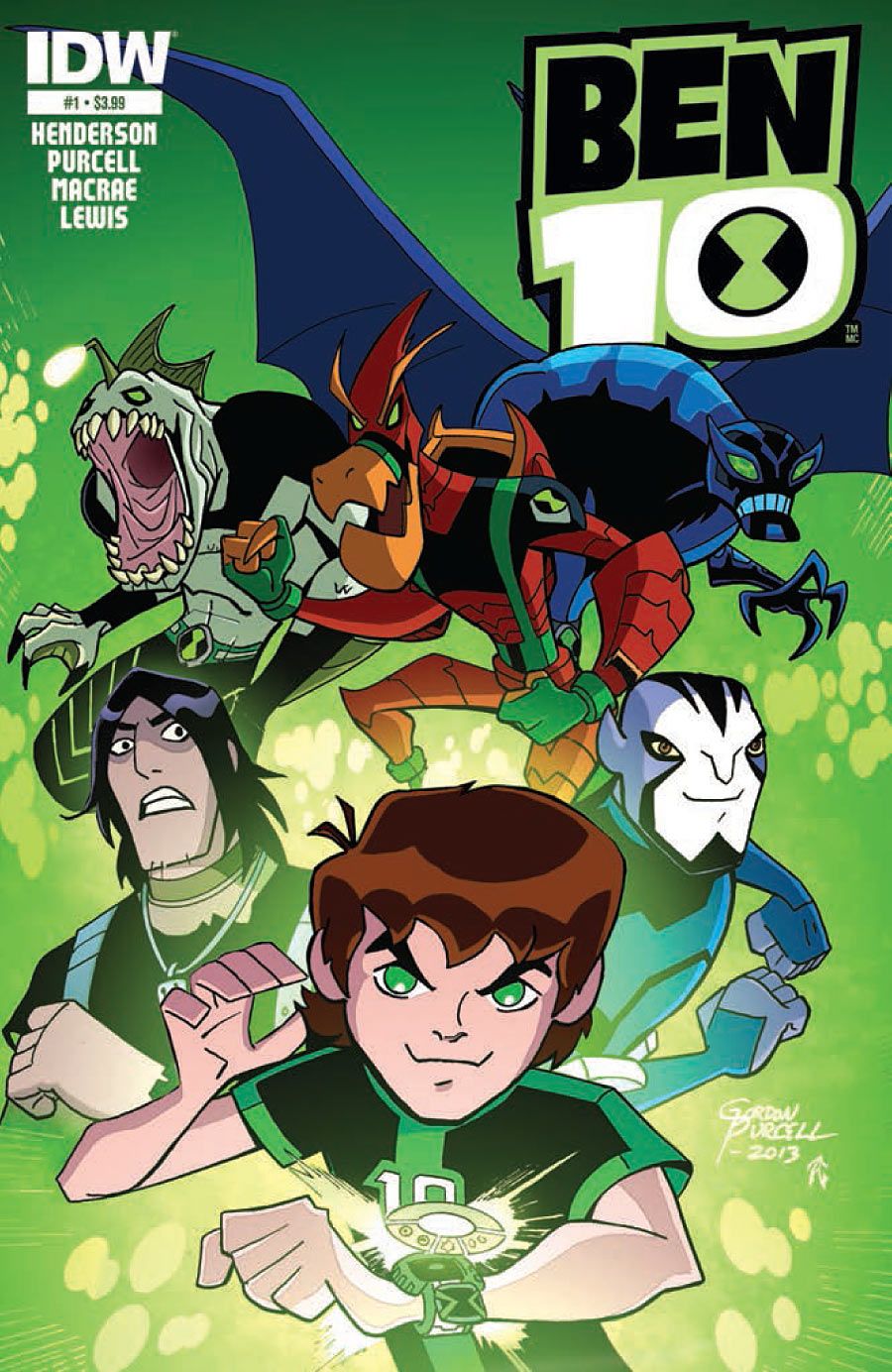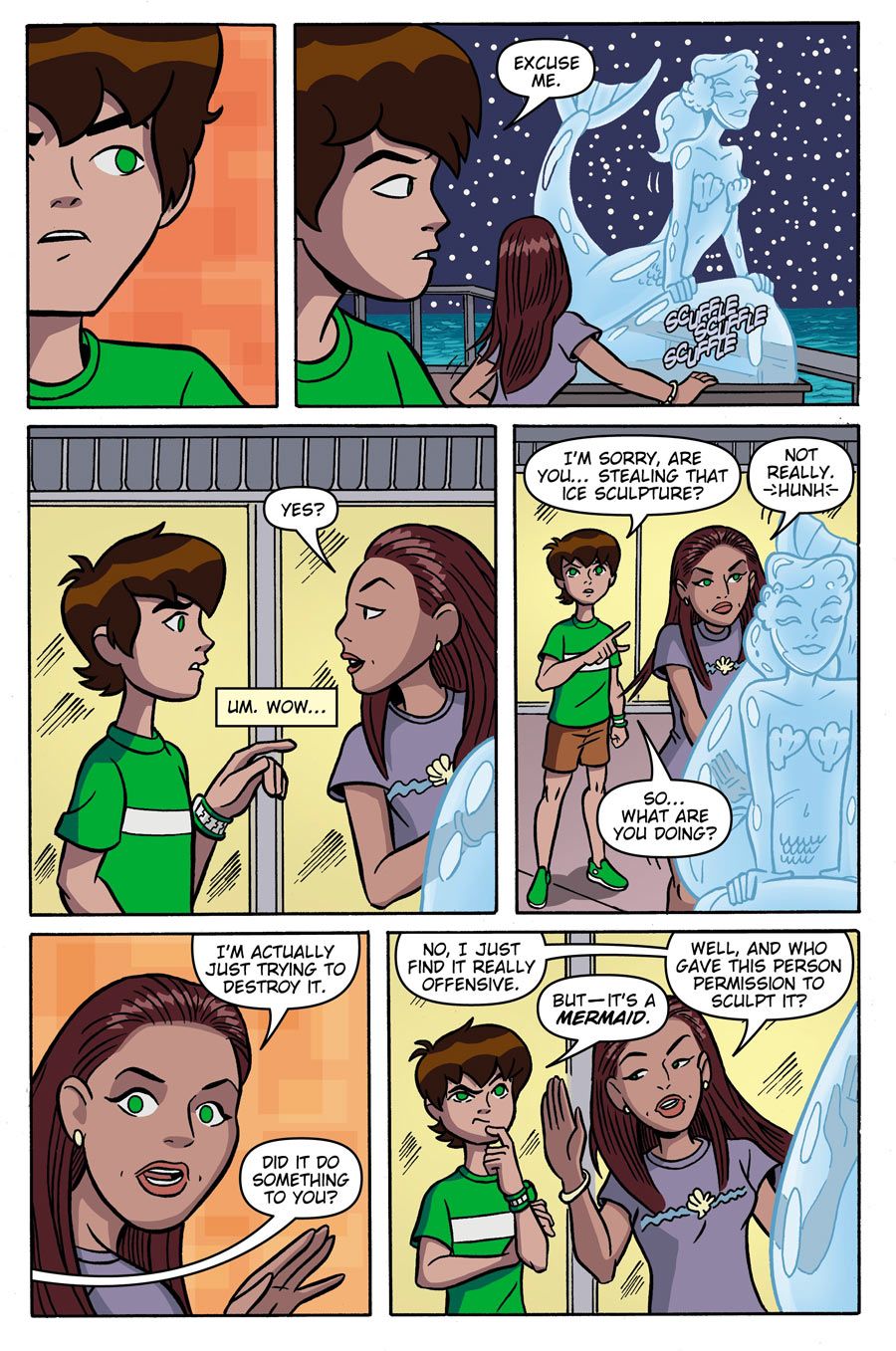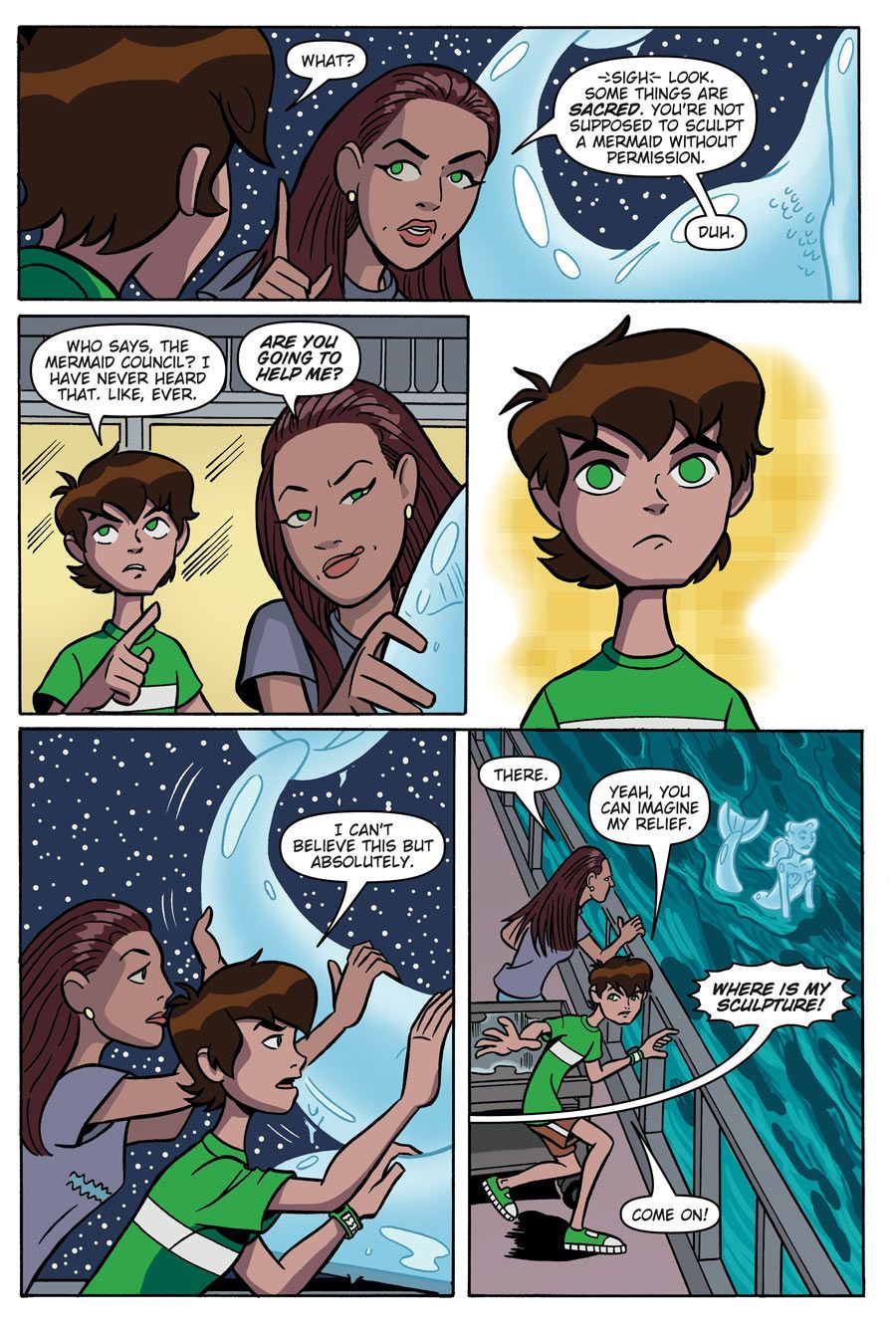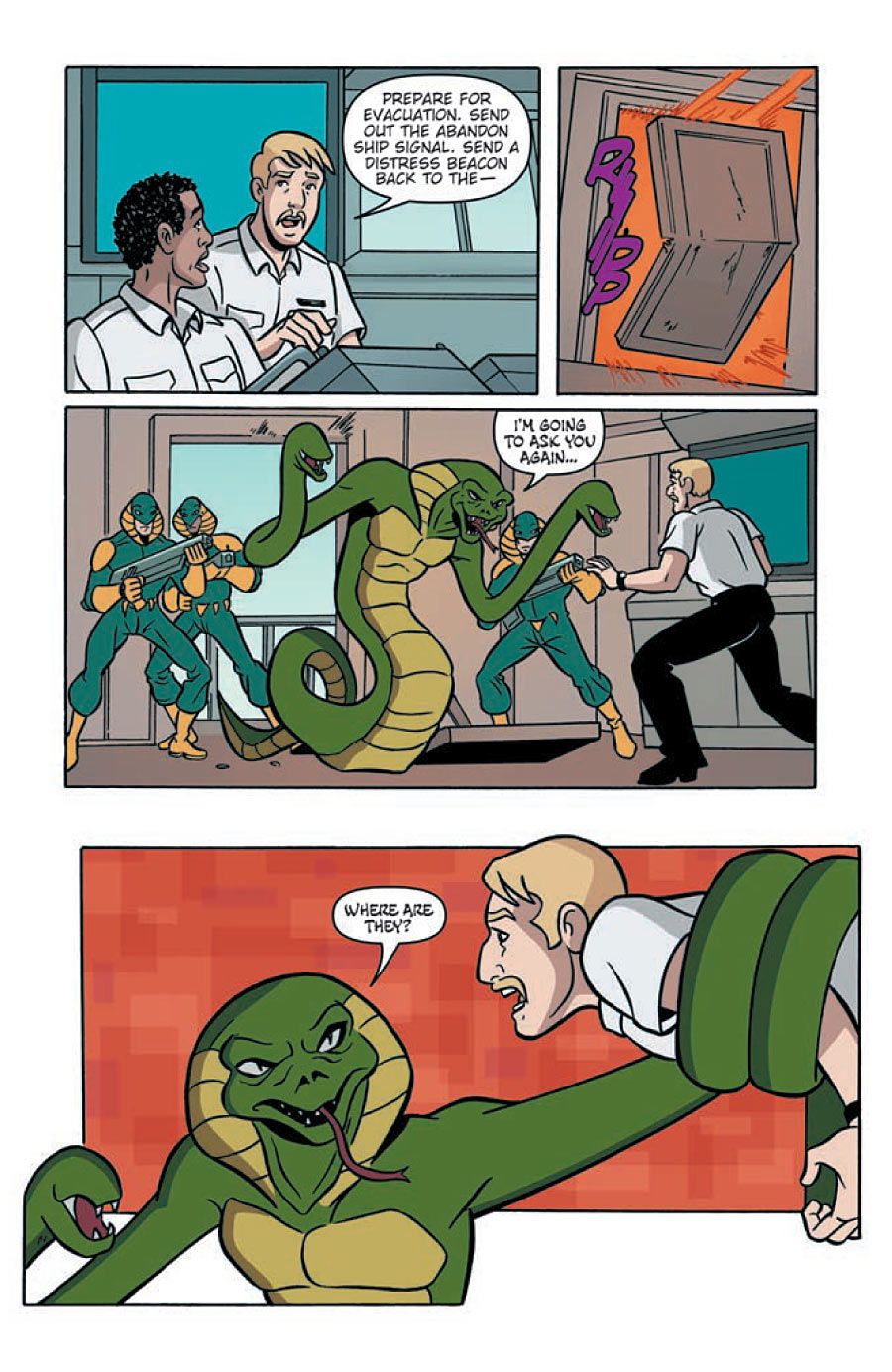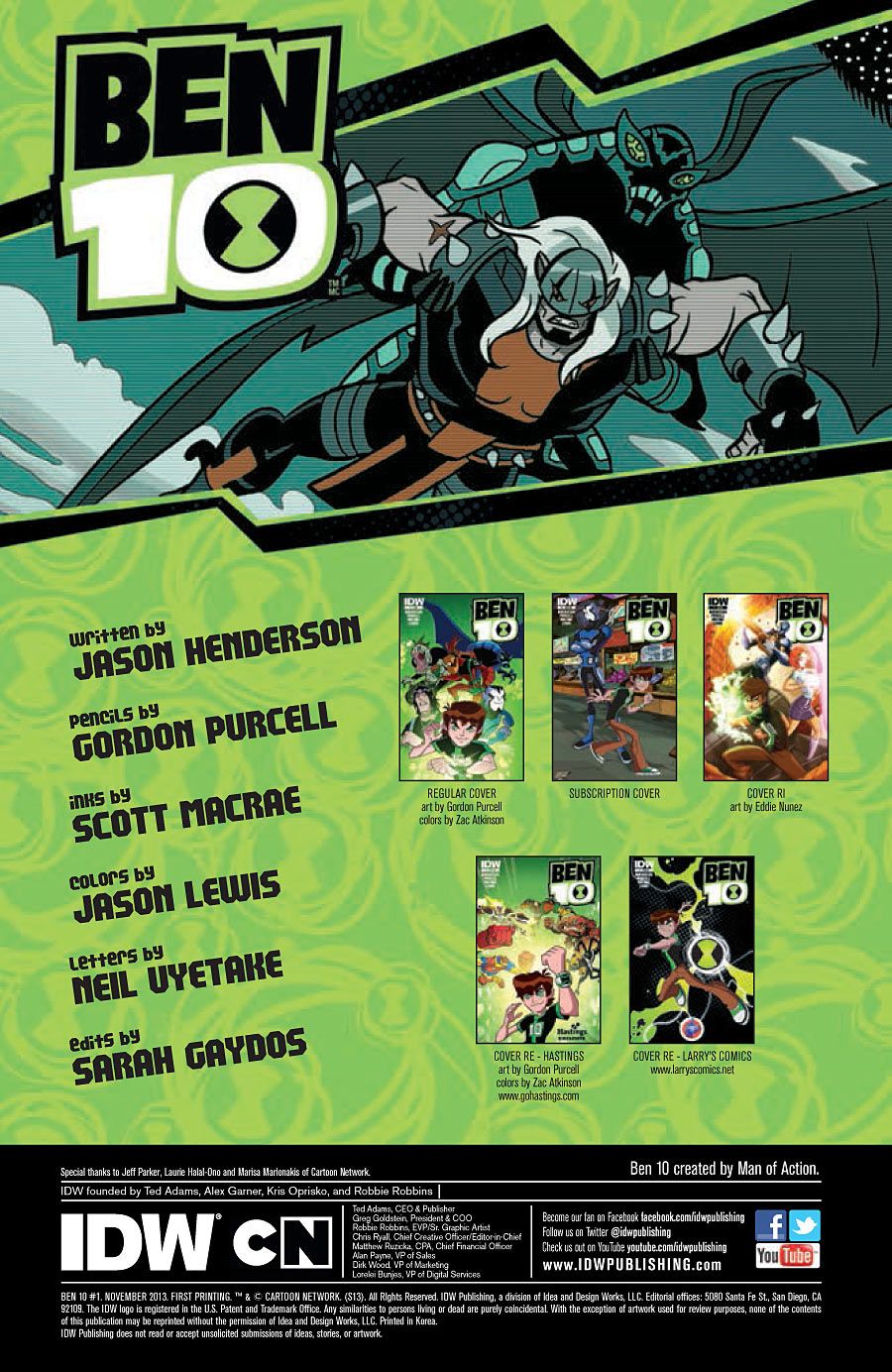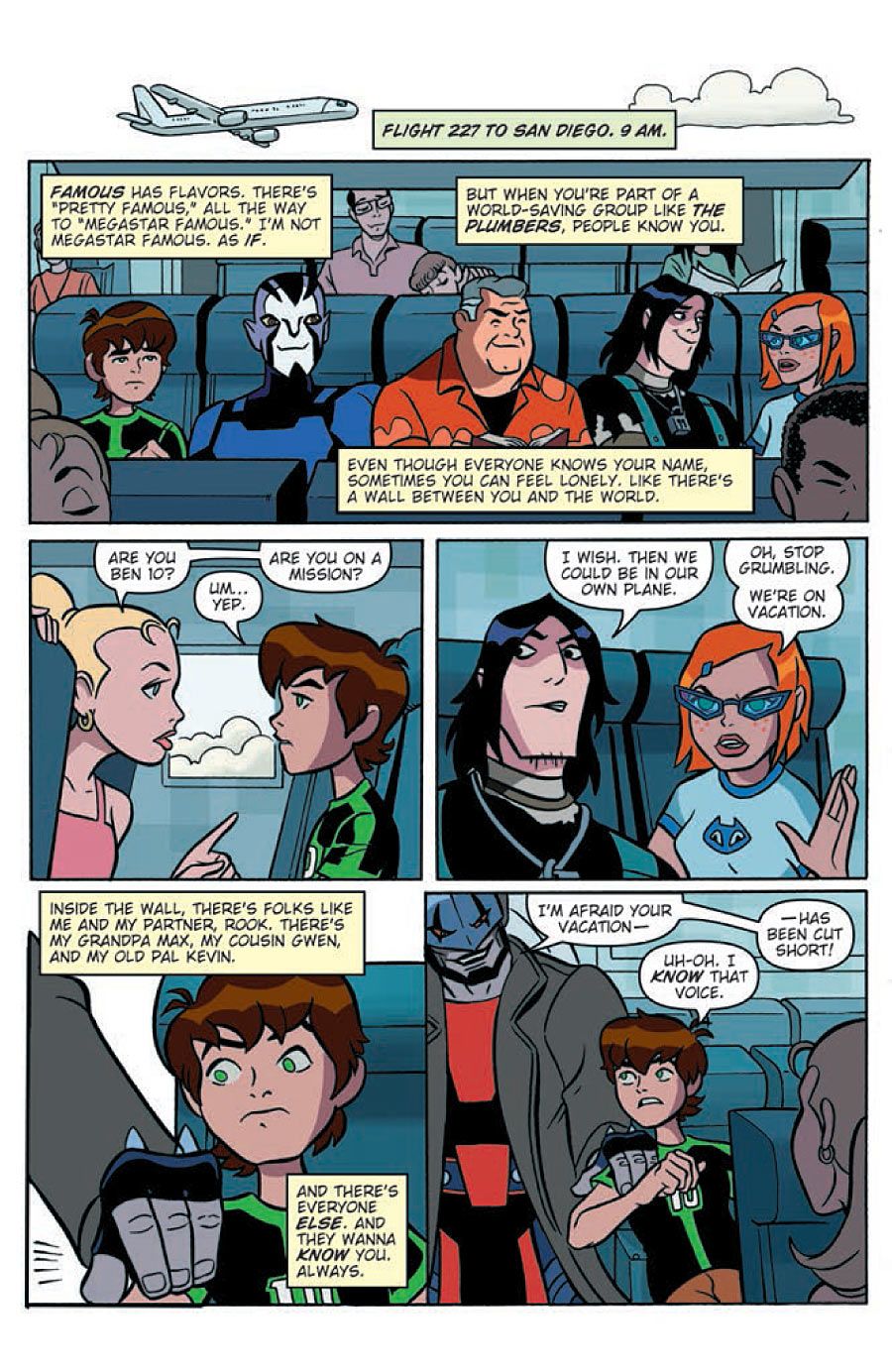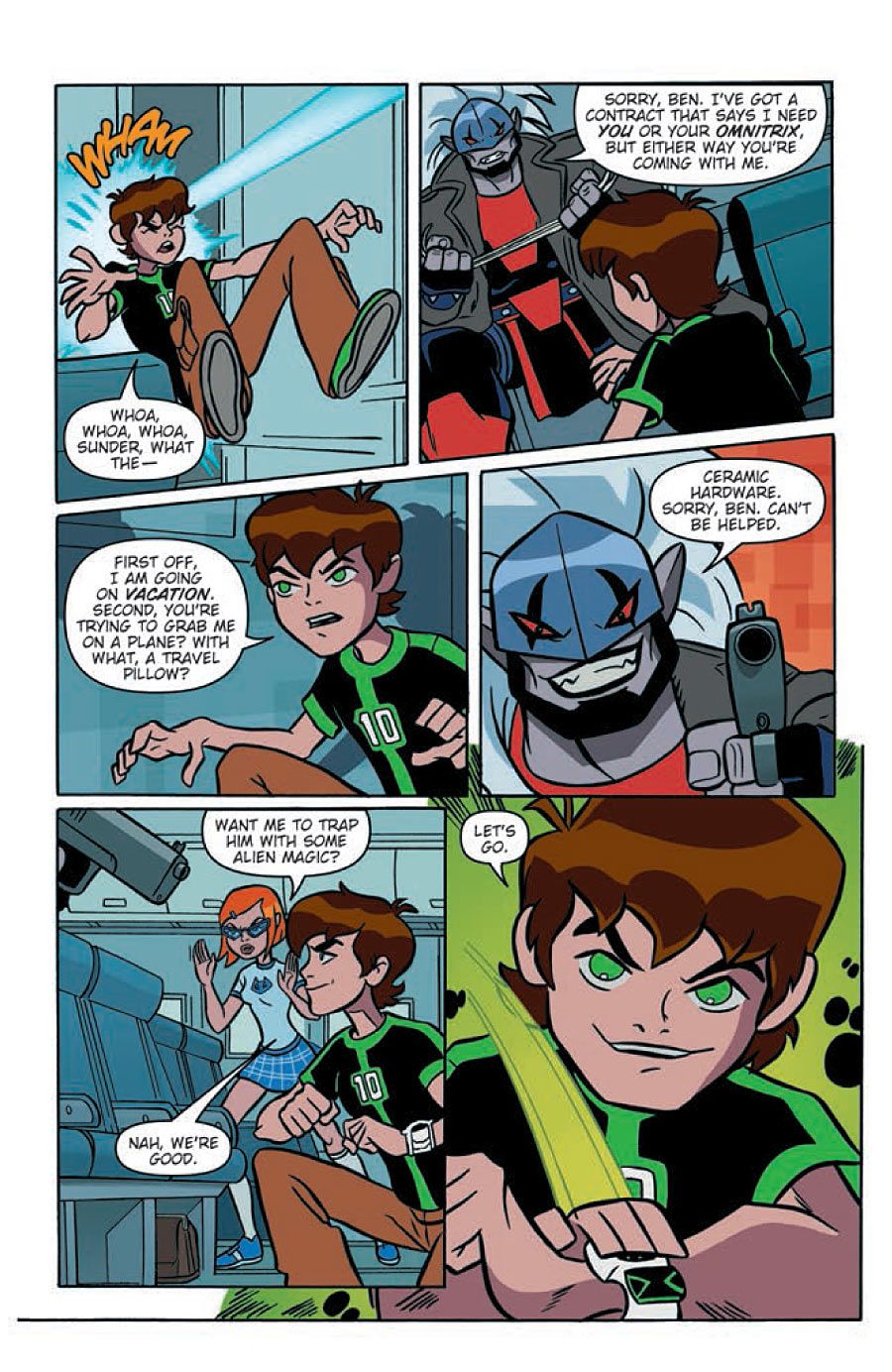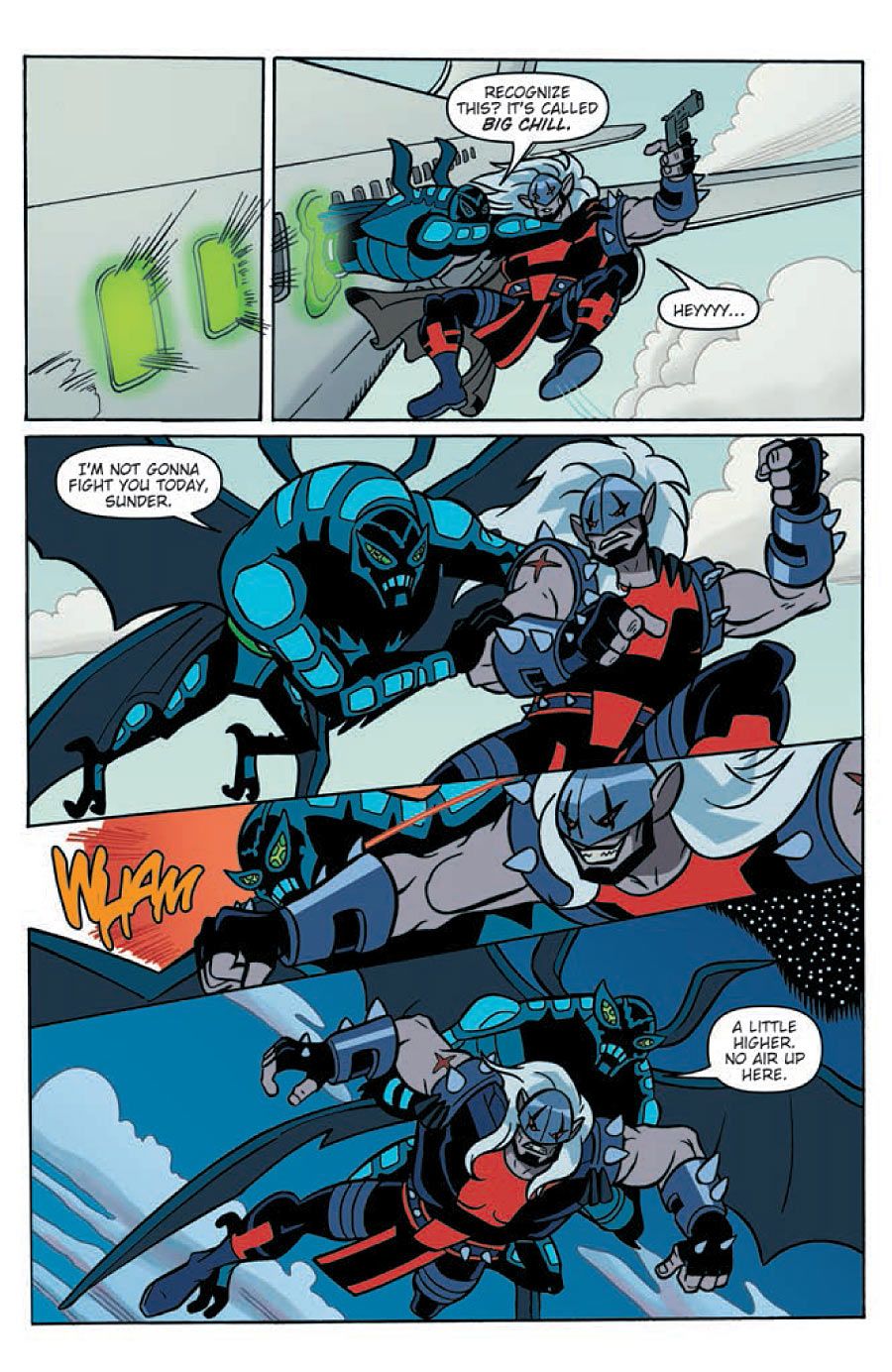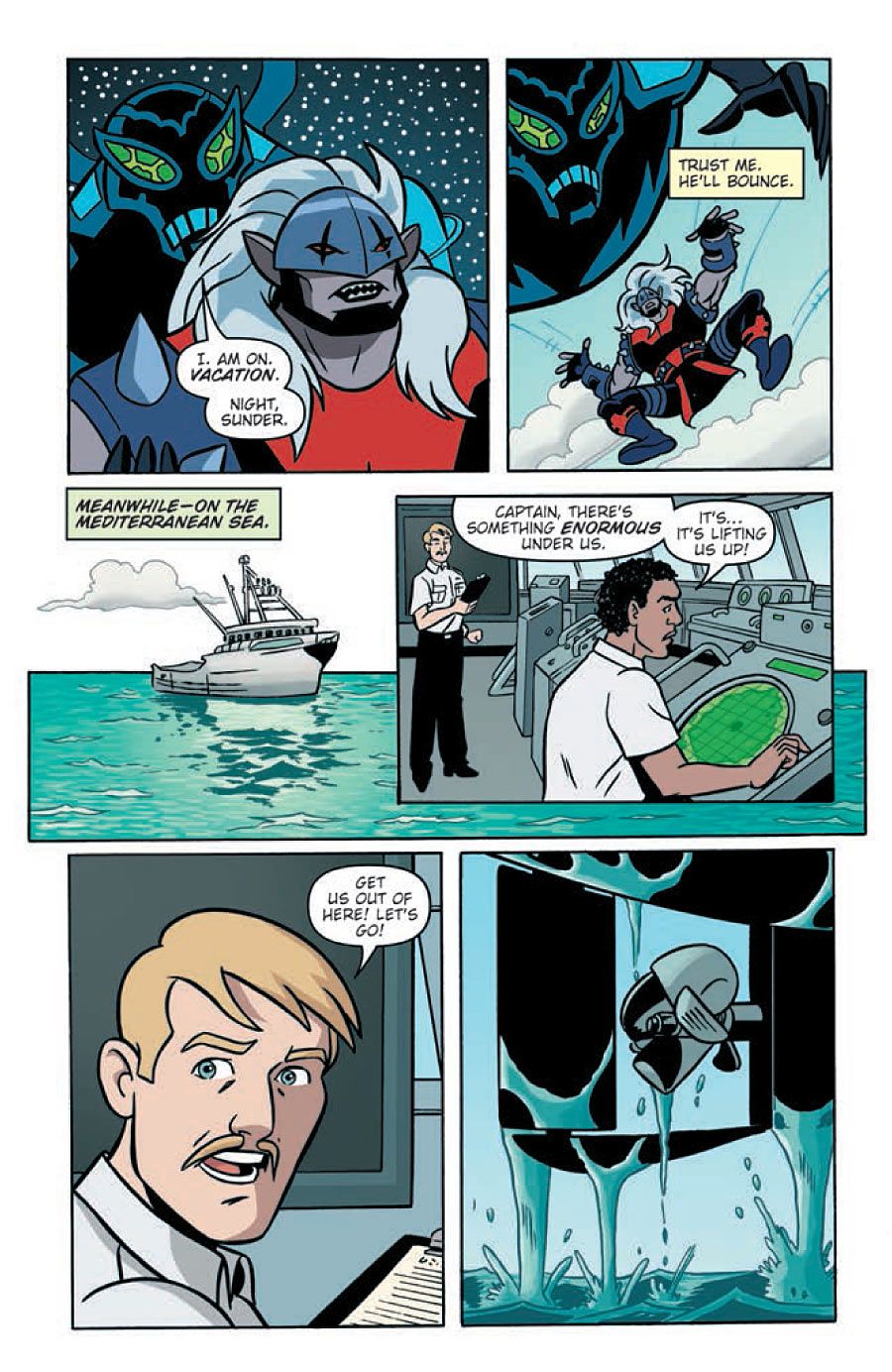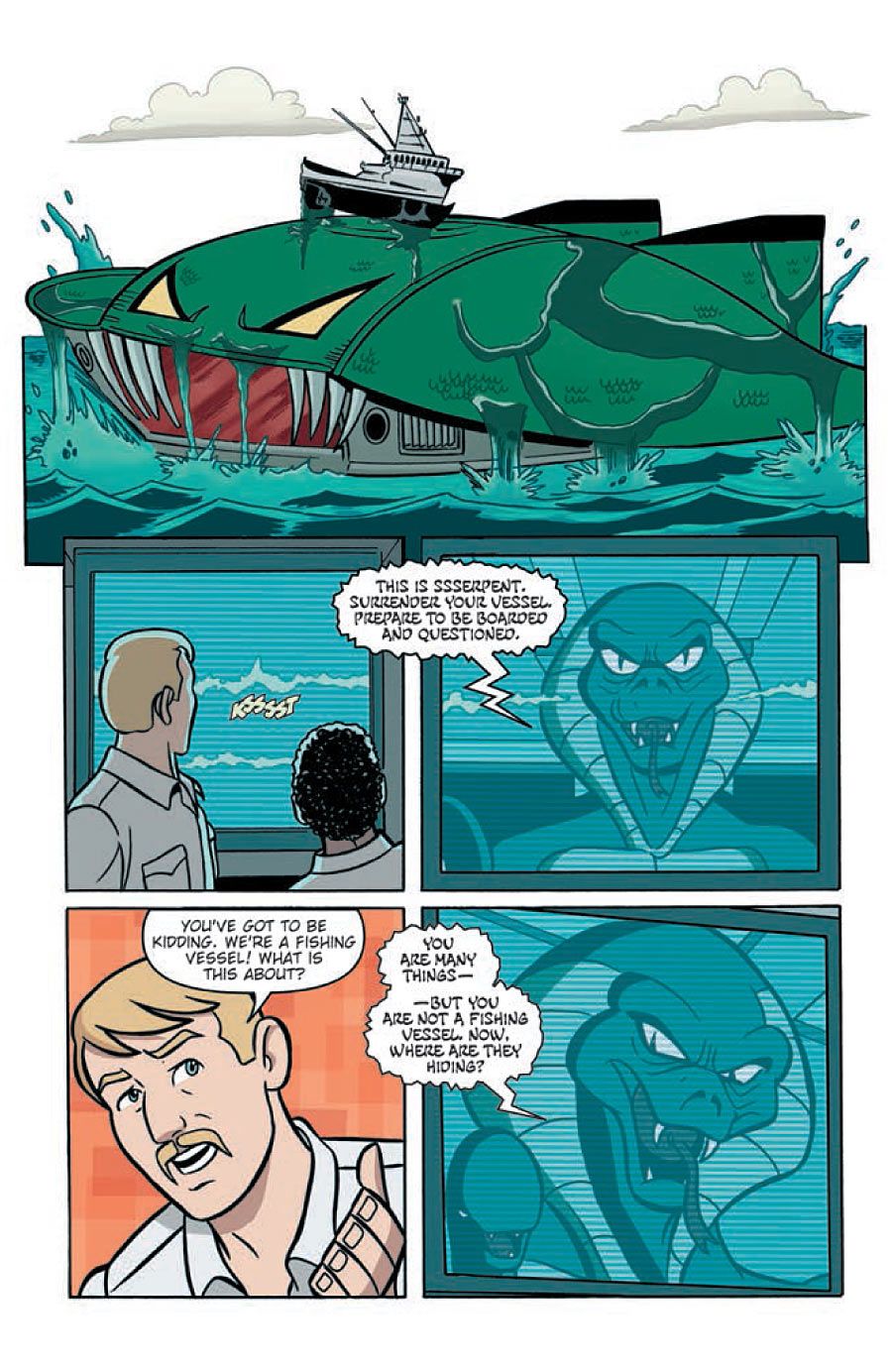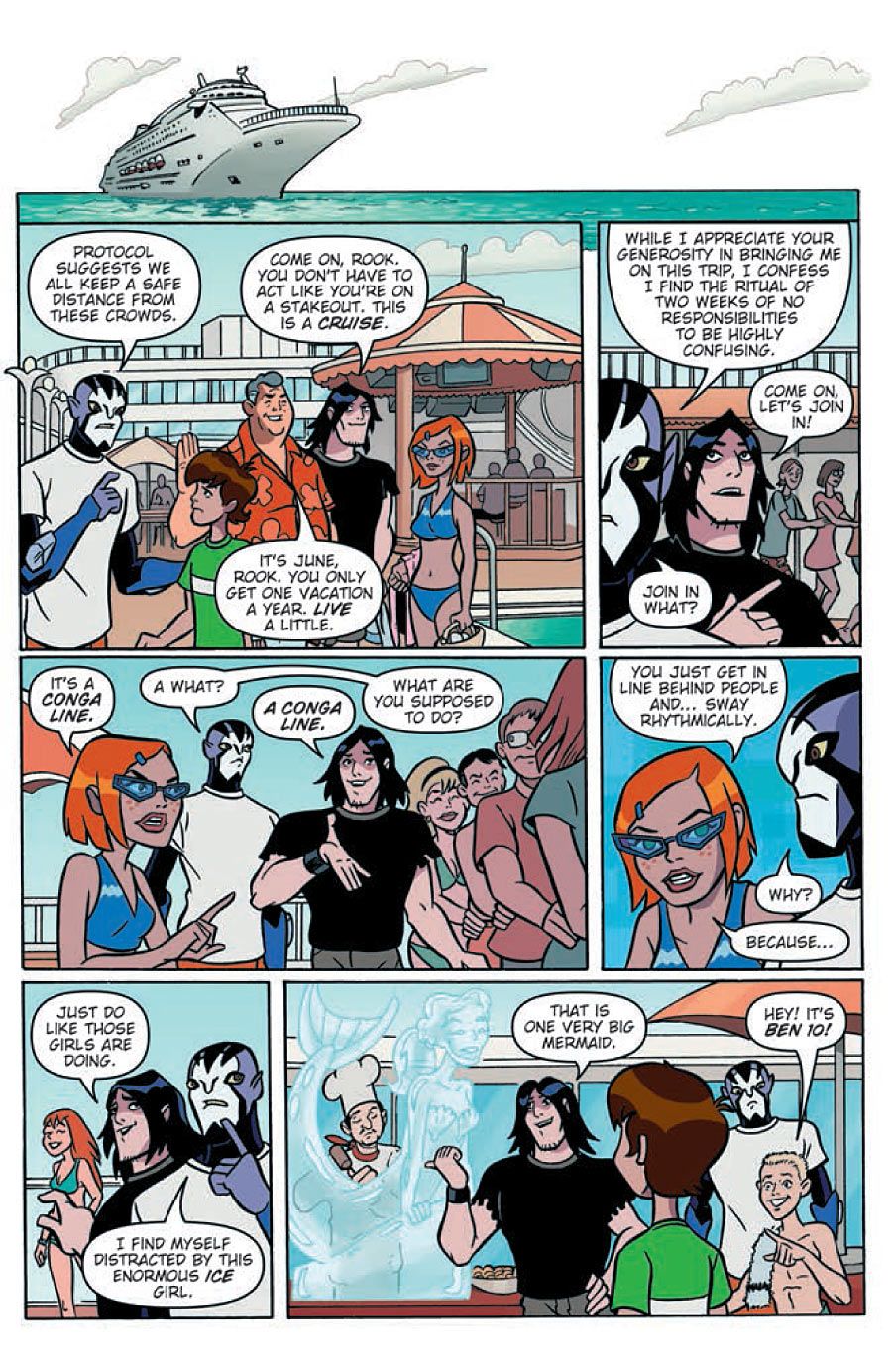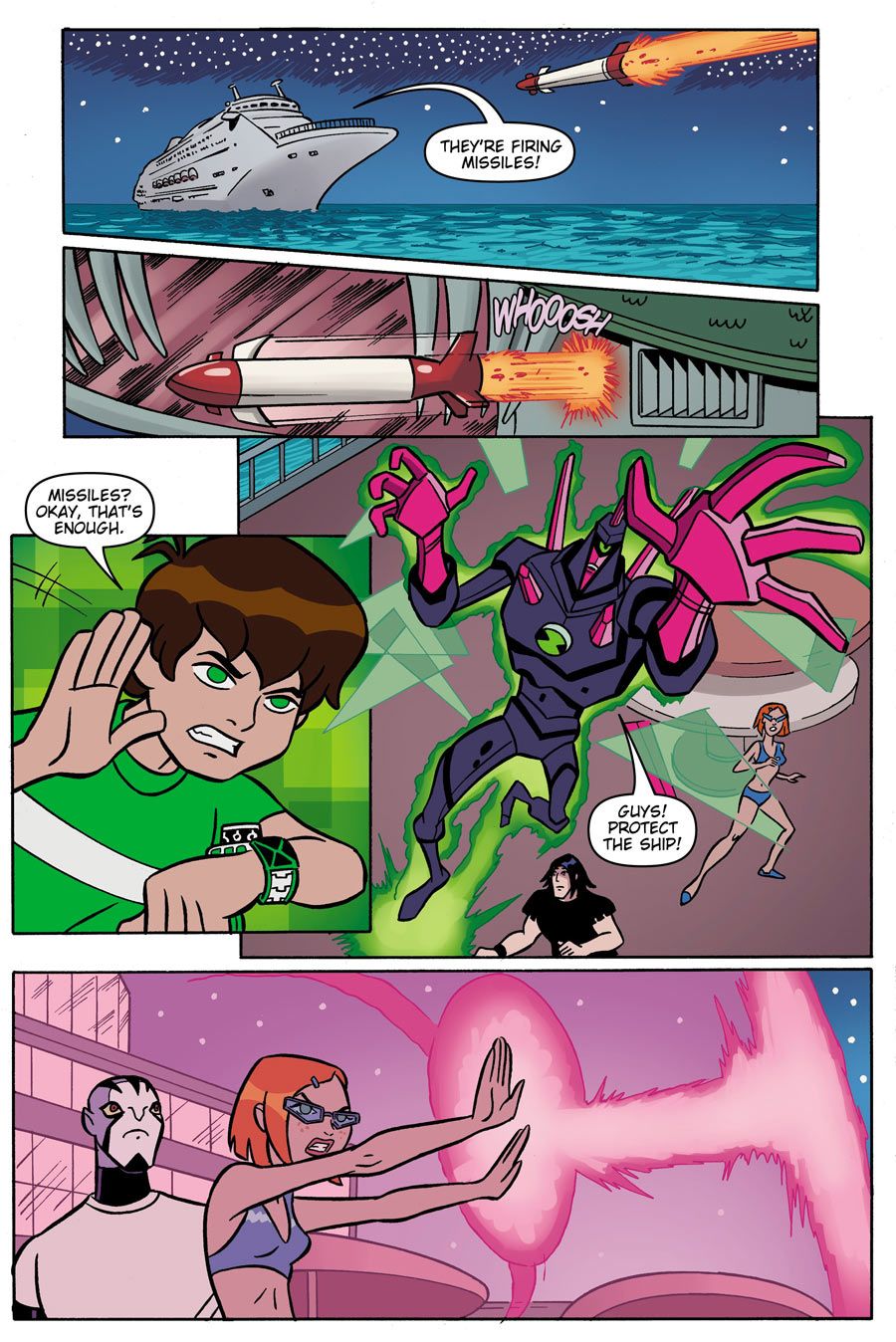IDW Publishing's partnership with Cartoon Network continued to grow with the debut of "Ben 10" #1, written by Jason Henderson and drawn by Gordon Purcell. Created by Man of Action Studios in 2005, the animated series tells the story of Ben Tennyson, a teenaged superhero who fights crime using the Omnitrix, an alien device that allows him to transform into a variety of alien creatures.
Henderson, who also writes the "Alex Van Helsing" series of novels and recently scripted the Activision video game "TMNT: Out of the Shadows," spoke with CBR News about "Ben 10," explaining why he's taking Ben on a high-seas adventure for his debut story, where he gets his inspiration, which villains have it out for Ben in the opening arc and more.
CBR News: What are your plans for the first "Ben 10" story arc?
Jason Henderson: I wanted to do a "boy's own adventure" on the high-seas. As it happens, some of my favorite "Ben 10" episodes did happen on the ocean: "The Widening Gyre," which was funny and scary, and the various episodes that dealt with the water planet Pisciss. But in this case, it's a contained 4-issue story that starts on a cruise ship and stays oriented around the Pacific Ocean. You've got government conspiracies, undersea mermaid kingdoms and out-of-control defense contractors, of course. We also get to see the Honolulu Headquarters of the Plumbers, Ben's alien-allied, alien-fighting alien organization.
What villains stand in Ben's way?
This story arc all belongs to Ssserpent as the bad guy, although there are shadowy figures in the background who are just as bad, if not worse. Fans of the series will recall, Ssserpent is an alien of indeterminate origin who has the ability to shed his skin -- he's a big snake, really. In this story, he has a plan that involves eliminating a secret city in the sea that has vowed to protect Earth's oceans. Of course, Ben knows very little of this at the beginning of the story.
Did you draw inspiration for this story from anywhere in particular?
Oh, so many inspirations! I was really inspired by big, thrilling ocean adventures I'd enjoyed, from old Gene Autry serials to classic "Aquaman" -- you know, not the sort of "Aquaman" story where he broods all the time and attends UN meetings, but the kind where he rides a whale and saves burning ships.
Since Ben is a teenager, now, does it change the type of "Ben 10" stories you can tell with the character? Would you compare him to other classic teen heroes like Spider-Man?
He's 16! So for one thing, that means self-doubt and romance. Now, Ben will never be the nebbish that Peter Parker was. Ben has always had more than enough confidence. But he's alone. The internal story for Ben in this series is that, for all the fans and adulation he gets, Ben is fundamentally lonely and doesn't want to be. And into his life comes a strong, responsible young woman who is the central figure in the story of her people -- her name is Lorelai, and she is the chief defender of her city. Mind you, Ben has had lots of girlfriends, but I love how this girl he meets is as dedicated and distracted by her responsibilities as Ben is by his.
Have you consulted with "Ben 10" creators Man of Action about your approach to their characters?
We spoke at the Denver Comic-Con where I was on some panels with Man of Action -- other than that, it's been a matter of back-and-forth between me, IDW and Cartoon Network, where they read the scripts, give feedback and so forth.
How were you brought on to this project?
I suspect it was because I was already writing a series about a lonely, action-oriented teenage agent of a high-tech globe-spanning organization. I was writing the Alex Van Helsing adventures, a series of young adult novels for HarperCollins/HarperTeen. I had worked with IDW already on Gene Simmons' "House of Horror" in the past, and they suddenly asked me if I could pitch a "Ben 10" story. But that never means you actually have the job -- it just means you get to pitch a story and see if it works. In this case, they liked my story.
What's your script writing process like?
I love the process of creating comics. Comic book scripts usually run 20 or 22 pages, typically 5-7 scenes. I usually outline in Word or Excel, then write actual comic scripts in Final Draft, which is a screenwriting software. Generally, only writers and producers have Final Draft, so I export the script and deliver it in Word to the editor. From then on, the editing is all in Word.
Once the script is approved, you share it with the artist. I like to leave lots of room for the artist to interpret. I like to think the artist is like the guy in the field -- he knows if something needs to change. Then I can go back afterwards and adjust the dialogue and sound to fit the art.
You also write for video games, most recently scripting Activision's "Teenage Mutant Ninja Turtles: Out of the Shadows." What's the difference in writing for a video game versus writing for the comic page?
Both of these media can be deceptive -- for instance writing a comic involves (based on what you may be asked to do) concept and character design, plot, script, revision, and lettering revisions.
Games can also include a lot of different writing work: concept and character design, plot, script, then maybe acting directions in the booth. The big difference in writing for a game is that the work is less one giant cohesive unit in the way that a comic is. A comic is one piece, 20 pages or 22 or, in the case of manga, maybe hundreds of pages.
I had a really interesting comic experience this year with "Clockwerx," a hardback graphic novel I co-wrote with Tony Salvaggio, who is also a cast member on the "Castle of Horror" podcast. That was a case where we wrote the script in English, saw it changed and released in French, and then wrote a new version based on the art and the translation for the American edition. So that was a script based on a translation of our own script. And I love how it came out in the end!
A game can be as big as the designers want it to be. And you do different kinds of dialogue -- dialogue for cut scenes, in-game scenes, and then what we just call "events" like the guy behind the counter in the game who says, "Hey! It's good to see you back at the black market! Do you need to purchase more ammunition?" You may have to write 300 variations on "Ugh! He got me!" Those, you generally provide in a spreadsheet like excel. These are the jobs you do because you're a writer and you are good with English and its many twisty permutations.
Do you have any other interesting projects coming up?
I have several proposals out there -- more "Ben," more "Alex," and some totally new things. But nothing to announce yet! Still, if people want to check in with my every week, I host a regular podcast on horror movies, the Castle of Horror Podcast -- you can find all our episodes here!
"Ben10" #1 is available now from IDW Publishing.


